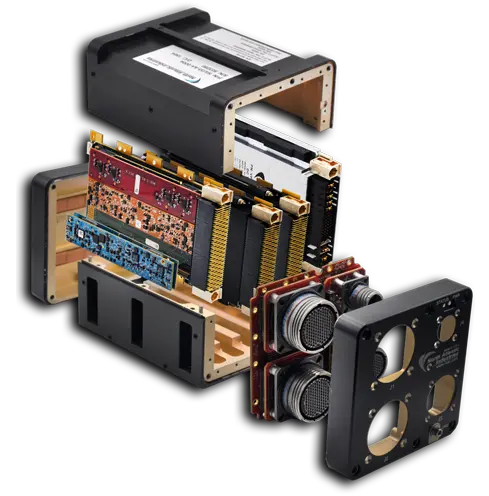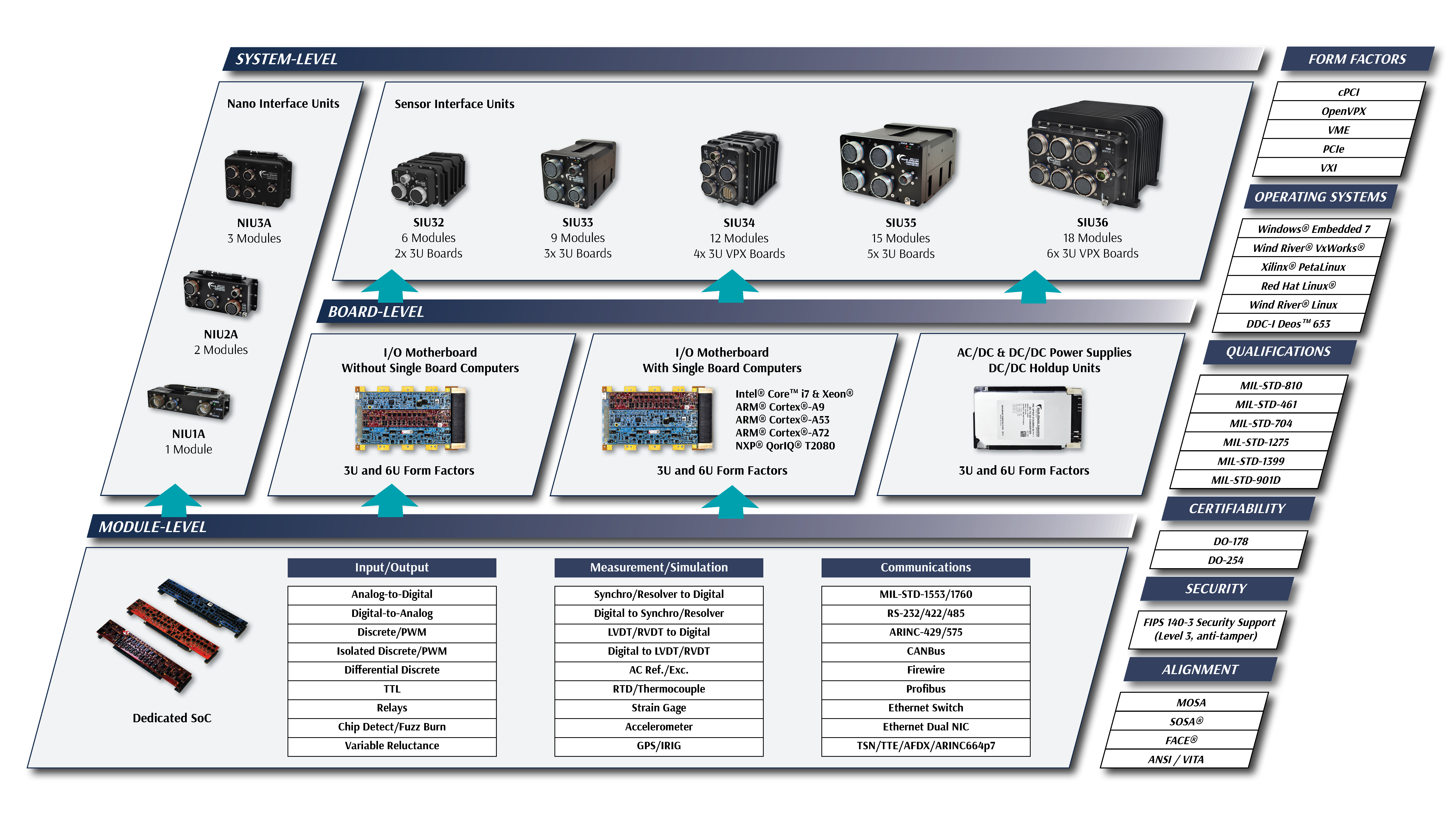The long-standing goal at North Atlantic Industries (NAI) is to accelerate your time-to-mission—to get you to market faster. NAI’s COSA technology, also known as “Configurable Open Systems Architecture” technology, helps you do just that. In a distributed, intelligent, software-driven architecture that allows you to rethink the way you engineer power-critical and I/O-intensive mission systems, COSA satisfies an impressive range of complex and time-critical requirements.
How NAI’s COSA technology works:
- Select I/O boards, single board computers, power supplies or rugged systems to meet your requirements.
- Customize it in modular fashion, selecting from more than 100 available, high-density, fully tested I/O, communications, measurement and simulation smart function modules.
- Leverage NAI’s free software libraries, source-code and comprehensive API to jump-start development and speed your time to test.
- Easily adjust board configuration to add or swap functional capabilities if requirements change.
NAI’s COSA technology works by providing a framework for building software systems that are composed of independent software components, or “modules.” These modules can be configured and combined in various ways to create a customized software solution that meets specific requirements.
The COSA framework provides a set of standard interfaces and protocols that allow the modules to communicate and interact with each other, regardless of the programming language or platform on which they are implemented. This allows for greater flexibility in choosing and integrating different software components, and enables the creation of highly configurable and adaptable software systems.
COSA technology applications include industrial control systems, military systems, and telecommunications networks. It is designed to be highly modular, scalable, and adaptable to changing requirements, making it an attractive solution for complex and dynamic software systems.
COSA modules, boards and systems
Over 100 high-density, COSA smart modules are available for placement on NAI’s intelligent I/O boards, which can operate as standalone systems. Further, NAI’s OpenVPX, VME, cPCI and PCIe boards can be placed into rugged COSA systems that range from a single module to high-density systems supporting up to 10 motherboards and 60 smart modules (and virtually everything between).
COSA software and processing advantages
Dedicated FPGAs embedded on NAI’s smart modules provide unique software and processing advantages that drive time and cost out of design, development and qualification schedules—to accelerate your time-to-mission. The programmability, intelligence and self-monitoring capabilities put more I/O capability into the modules themselves so you can reduce the processing load on the SBC and deliver more capabilities at the edges of your applications.
Configurability of NAI’s COTS systems
- 100+ smart function modules
- Maximum of 6 slots per card
- Maximum of 18 functions per interface unit
NAI’s COSA architecture is massively configurable, providing more than 1.4 quadrillion possible system configurations. That staggering number represents the global population . . . x 2 million.
NAI’s COSA architectures is the most modular, agile, and rugged portfolio of its kind. It enables you to leverage their portfolio of pre-integrated modules, boards, systems and power supplies to quickly and easily meet complex mission processing requirements – today and down the road, allowing you to out-pace, out-adapt and out-last your competition.
Find a team of specialists from Integrys Limited at booth #526 at CANSEC 2023 in Ottawa, Ontario on May 31st and June 1st 2023 to learn more about COSA.
Contact
To learn more about how NAI’s COSA technology can accelerate your time-to-mission or to request a quote, click here to contact us.


